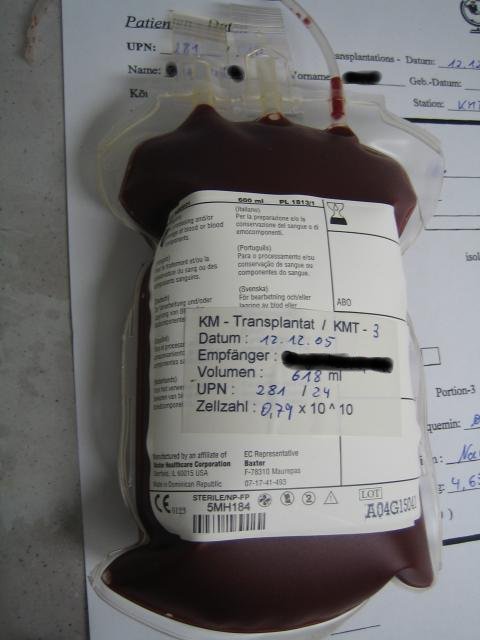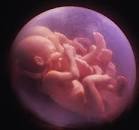
Recently Diagnosed or Relapsed? Stop Looking For a Miracle Cure, and Use Evidence-Based Therapies To Enhance Your Treatment and Prolong Your Remission
Multiple Myeloma an incurable disease, but I have spent the last 25 years in remission using a blend of conventional oncology and evidence-based nutrition, supplementation, and lifestyle therapies from peer-reviewed studies that your oncologist probably hasn't told you about.
Click the orange button to the right to learn more about what you can start doing today.
- You are here:
- Home »
- Blog »
- non-conventional therapies »
- Twin Sister Dx’ed With Multiple Myeloma- Syngeneic Transplant?
Twin Sister Dx’ed With Multiple Myeloma- Syngeneic Transplant?

“Syngeneic transplants are allogeneic transplants that come from an identical twin. If you’re lucky enough to have one, this may be your best option because the transplanted cells will be the best match they can be”
Hi David- My twin sister Patty was diagnosed with Multiple Myeloma 2 months ago. Patty & I are identical twins and initially we were told that she would receive some of my stem cells for bone marrow transplant, but just last Monday when she saw the Heamatologist, he said that may not be a good idea afterall.
I’m not sure why, but I guess that could change again. I have suffered from chronic fatigue for years, however I have had a bone marrow biopsy which is normal.
My sister is being extra careful with her diet & sometimes I do some juicing for her. The worst problem is fatigue from Revlimid/Lenalidomide which she has just started taking at night instead of morning.
Your story is very inspiring and encouraging and I pray that you will continue to enjoy quality of life. I am considering your course. Patty will probably have her SCT at the end if September this year.
We live in Australia. Which CBD product do you recommend (preferably organic)? Joan
- an allogeneic/syngeneic BMT is, in theory at least, much more effective for MM patients. Please read the study linked below.
- again, in theory, syngeneic transplantation is curative-
- increase in the rate of complete remission
- increase in the length of progression-free survival (length of first remission)
- increase in the length of overall survival aka length of life
While the study does not say anything about short, long-term and/or late stage side effects, my thinking would be that a syngeneic SCT would result in fewer side effects that the other two types of SCT.
- MM Survivor
- MM Cancer Coach
- Director PeopleBeatingCancer
Recommended Reading:
- Multiple Myeloma-10 Mind-Body Cancer Therapies Better than Chemo-
- Multiple Myeloma Side Effects- Prevent, Heal Chemobrain
- Multiple Myeloma Chemotherapy = Accelerated Aging
Cancer prehabilitation: an opportunity to decrease treatment-related morbidity, increase cancer treatment options, and improve physical and psychological health outcomes
“Cancer prehabilitation, a process on the continuum of care that occurs between the time of cancer diagnosis and the beginning of acute treatment, includes physical and psychological assessments that establish a baseline functional level, identifies impairments, and provides targeted interventions that improve a patient’s health to reduce the incidence and the severity of current and future impairments.
There is a growing body of scientific evidence that supports preparing newly diagnosed cancer patients for and optimizing their health before starting acute treatments…
More recent research shows that opportunities exist to use other unimodal or multimodal prehabilitation interventions to:
- decrease morbidity,
- improve physical and psychological health outcomes,
- increase the number of potential treatment options,
- decrease hospital readmissions, and
- reduce both direct and indirect healthcare costs attributed to cancer.
Future research may demonstrate increased compliance with acute cancer treatment protocols and, therefore, improved survival outcomes.
New studies suggest that a multimodal approach that incorporates both physical and psychological prehabilitation interventions may be more effective than a unimodal approach that addresses just one or the other.
In an impairment-driven cancer rehabilitation model, identifying current and anticipating future impairments are the critical first steps in improving healthcare outcomes and decreasing costs. More research is urgently needed to evaluate the most effective prehabilitation interventions, and combinations thereof, for survivors of all types of cancer.”
What is a syngeneic transplant?
“Syngeneic transplants are allogeneic transplants that come from an identical twin. If you’re lucky enough to have one, this may be your best option because the transplanted cells will be the best match they can be…
Syngeneic transplantation in multiple myeloma – a case-matched comparison with autologous and allogeneic transplantation. European Group for Blood and Marrow Transplantation
Twenty-five patients with multiple myeloma received bone marrow grafts (n = 24) or peripheral blood stem cells (n = 1) from twin donors.
The outcome was compared in a case-matched analysis to 125 patients who underwent autologous transplantation, and 125 who underwent allogeneic transplantation.
Seventeen patients (68%) receiving twin transplants entered complete remission, which was not significantly different from that of autologous (48%) or allogeneic (58%) transplants.
The median overall and progression-free survival for the twins was 73 and 72 months, respectively.
The overall survival tended to be better (73 vs 44 months) and the progression-free survival was significantly better (72 vs 25 months) than with autologous transplantation and both were significantly better than with allogeneic transplantation.
Three of 17 patients who entered complete remission following transplantation had relapsed at follow-up. This relapse rate was significantly lower than following autologous transplantation and similar to the relapse rate with allogeneic transplantation.
Only two twins died of transplant-related toxicity. Six further patients died of progressive or relapsing disease.
Syngeneic transplantation in multiple myeloma appears to be the treatment of choice if a twin donor is available.
A lower relapse risk than in autotransplantation may be due to reinfusion of malignant cells in some patients treated with this modality or to the presence of a graft-versus-myeloma effect in some syngeneic transplants.”


